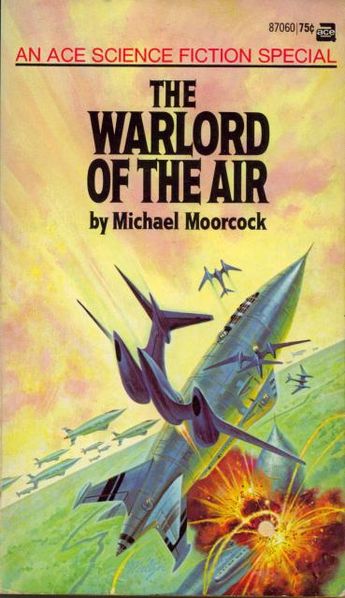
Michael Moorcock can’t take the entire credit for inventing steampunk with his 1971 novel The Warlord of the Air. (There’s also Walt Disney, for one.) But he can take some of it. Here’s the airships and the steam tech – and also something that (for better or worse) didn’t make it into the rest of the genre: Anti-imperialist satire.
Moorcock is a writer with a mission, and that’s one of the things I like about him. When you take the ideas out of SF, you remove some of what made it so interesting in the first place. It doesn’t have to be political ideas, but that’s what you often get from Moorcock, and what makes him one of my personal favorites. He probably wouldn’t enjoy sharing that spot with Robert Heinlein, (whose novels he once compared to Mein Kampf), but hey.
The Warlord of the Air is one of his very political novels. Moorcock’s neo-Victorian technology isn’t something glorious, it’s a symptom of a rotten world, an alternate world where the European empires never fell, and have continued to carry the white man’s burden up to the present, ie. the 1970’s.
Moorcock spoofs the arrogance of the well-meaning imperialist, and he uses the story to argue that a peaceful 20th century wouldn’t necessarily have been better than the 20th century we actually had. It would have just delayed the shakeup we needed.
Well – not sure about that. But then, disagreeing is half the fun of alternate history scenarios.